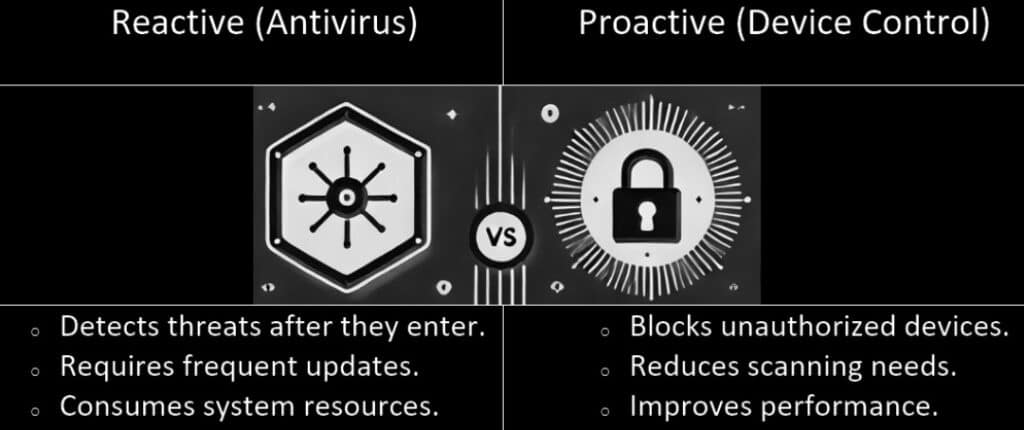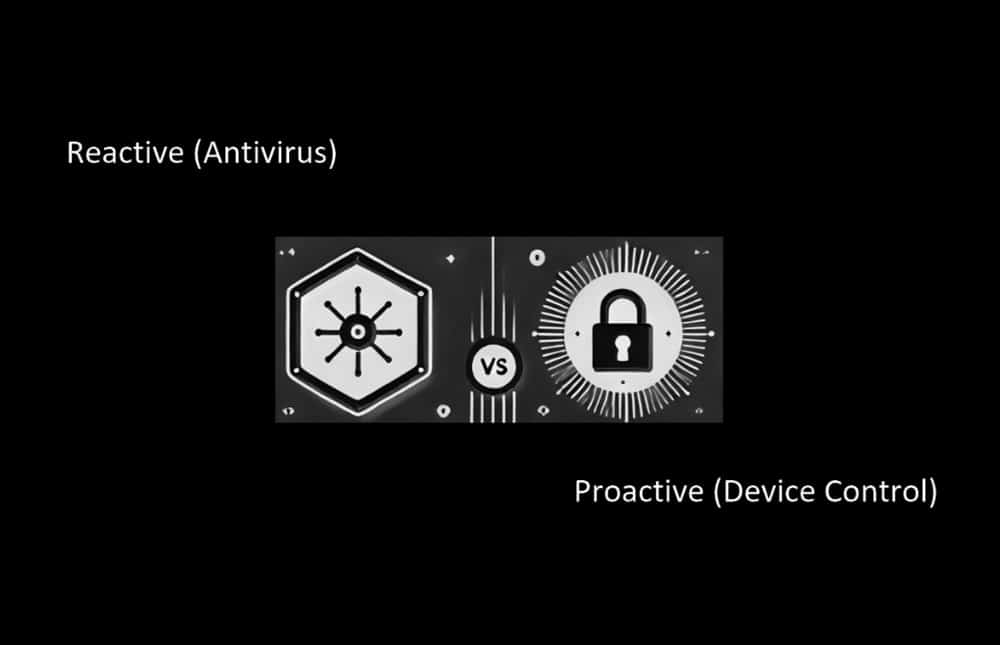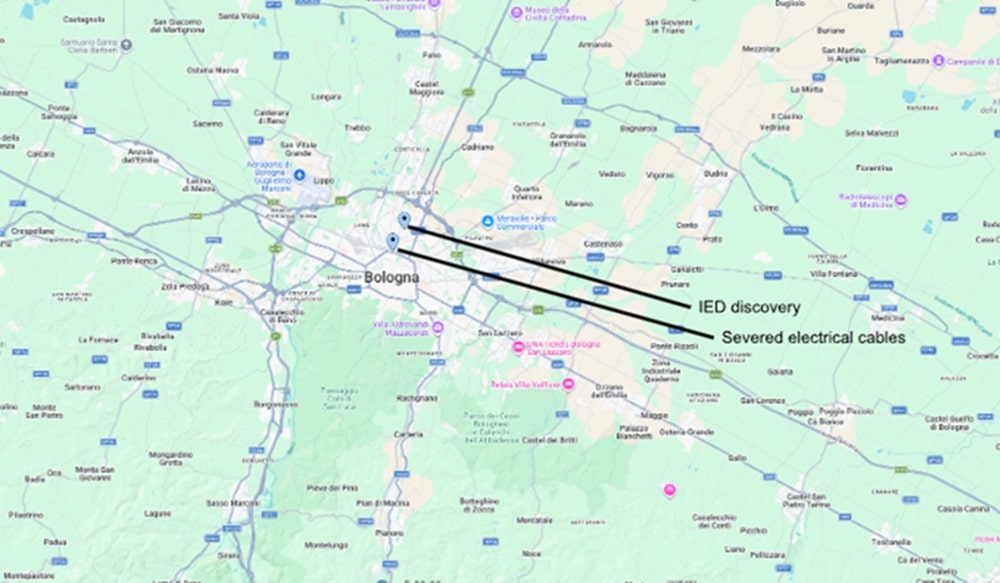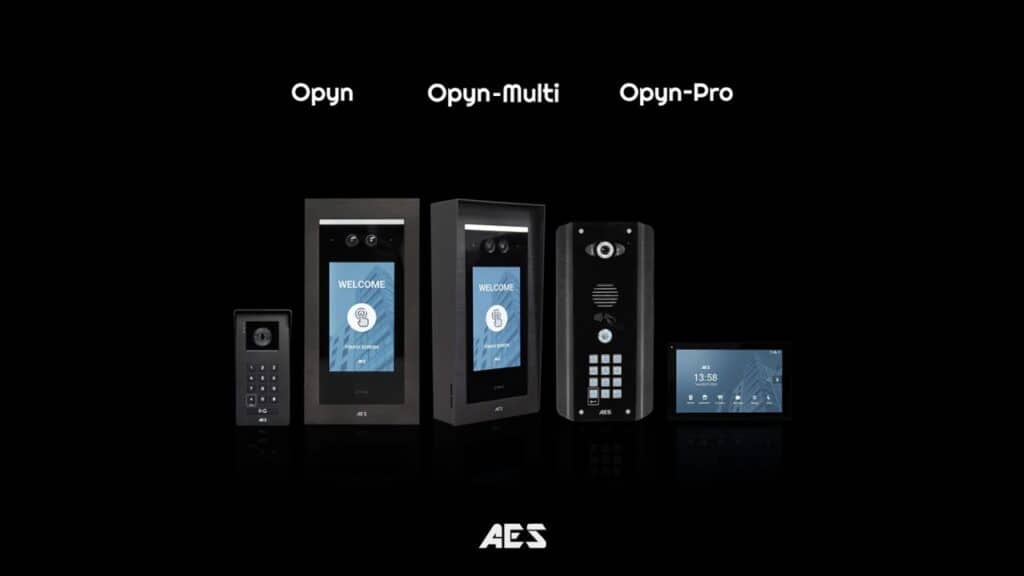In this special blog Javier Arrospide, CEO of Advanced Systems International, which develops USB Lock RP Device Control, discusses the importance of robust device control, in addition to antivirus software, for the most effective cyber protection.
Introduction: Layered security is essential
In today’s evolving threat landscape, relying solely on antivirus is no longer enough. While antivirus software remains critical for detecting and mitigating malware, device control adds a proactive layer by blocking unauthorised devices before they connect to your network.
Both solutions play distinct roles, but device control improves security efficiency by reducing the number of unknown or untrusted devices antivirus needs to scan. This ensures a smoother, more effective endpoint defense.
Antivirus: Reactive defence
Antivirus tools function by scanning for known threats, either on-demand or in real-time. While they are effective at identifying and mitigating malware, they only activate after a potential threat has entered the system.

Strengths:
- Detects viruses, ransomware, and other malicious software.
- Essential for mitigating known malware attacks.
Limitations:
- Consumes system resources.
- Requires frequent updates to remain effective.
Device Control: Proactive prevention
Device control software like USB Lock RP takes a different approach by blocking unauthorized devices from accessing the network altogether. By reducing the attack surface, device control limits the need for frequent scans, enabling more efficient use of system resources. With centralized management, only pre-approved devices gain access to endpoints, providing both security and operational efficiency.
Strengths:
- Prevents unauthorised devices from accessing the network.
- Reduces the risk of external and insider threats.
Bonus:
- Frees up system resources by limiting unnecessary device scanning.
How the two work together: A layered Defence
A layered approach combining antivirus and device control offers the best of both worlds:
- Device Control ensures only trusted devices can connect to the network.
- Antivirus scans authorised devices for malware to detect hidden threats.
This combination enhances both security and performance, protecting against both external attacks and insider risks.
Takeaway: Is device control your missing layer?
Many organisations still rely primarily on antivirus, overlooking the risks posed by uncontrolled device access. Incorporating device control software ensures that only trusted devices connect to your network, reducing the burden on antivirus solutions and improving overall security efficiency.
USB Lock RP offers comprehensive device control with centralised management, securing your endpoints without compromising performance.
To read the blog on LinkedIn, and give your thoughts, click here
For more USB Lock news, click here




